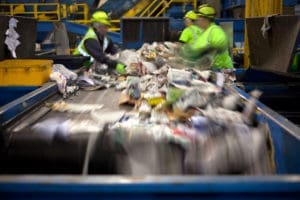Plastic Makers Facing New Regulations Around Circular Economy
 As recycling initiatives pick up steam nationwide and increasing numbers of states and communities embrace easier, more convenient recycling programs, legislatures are starting to consider more aggressive regulations around something called extender producer responsibility (EPR).
As recycling initiatives pick up steam nationwide and increasing numbers of states and communities embrace easier, more convenient recycling programs, legislatures are starting to consider more aggressive regulations around something called extender producer responsibility (EPR).
EPR is a fundamental element of a larger economic approach known as a circular economy. Essentially, a circular economy is an approach to manufacturing and recycling aimed at reducing wasting and avoiding pollution in two ways – through the use of biological nutrients which re-enter the biosphere to break down safely, and technical nutrients, which are high quality components that can be recaptured and re-used over and over again in the manufacturing process.
By extending producer responsibilities for their products and the materials used to make them, governments are mandating that companies assume end-of-lifecycle responsibility for what they use and how they use it. EPR systems and programs, such as the one now in place in California managed by the Department of Resources Recovery and Recycling, require manufacturers to fund and manage recycling and disposal programs for their products. In the United Kingdom, government regulations now require packaging manufacturers to ensure a certain proportion of their packaging is recovered and recycled.